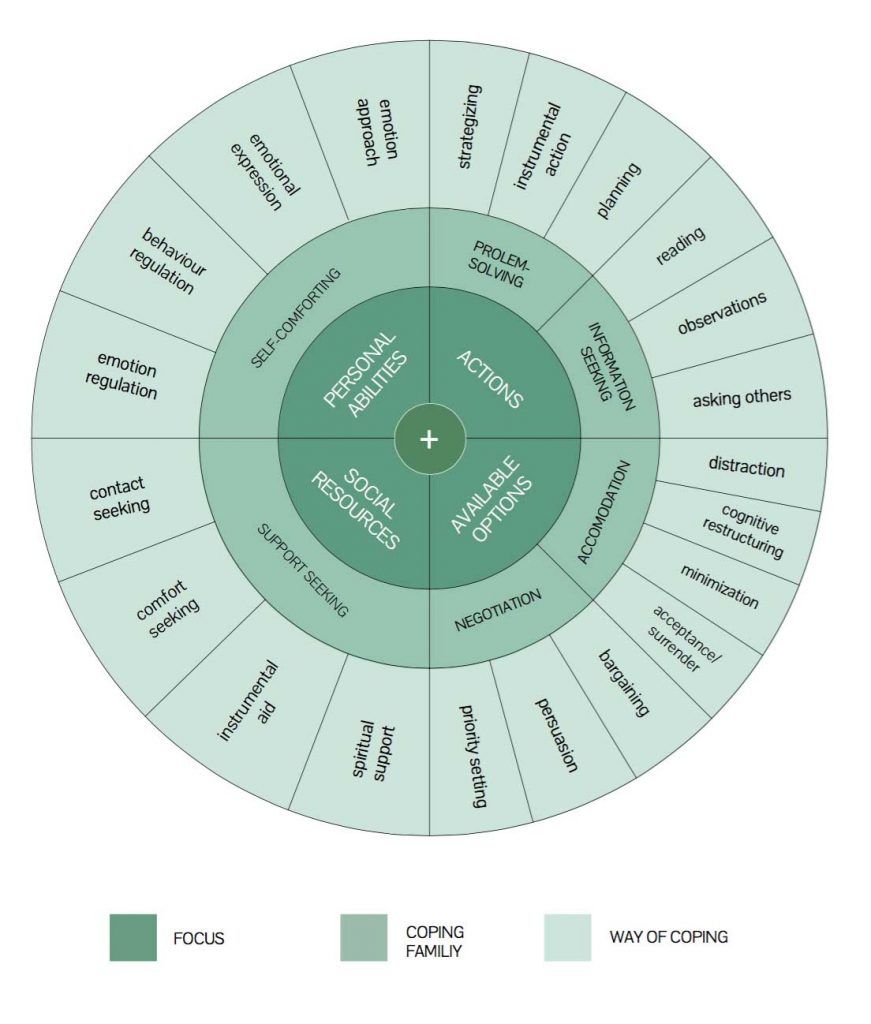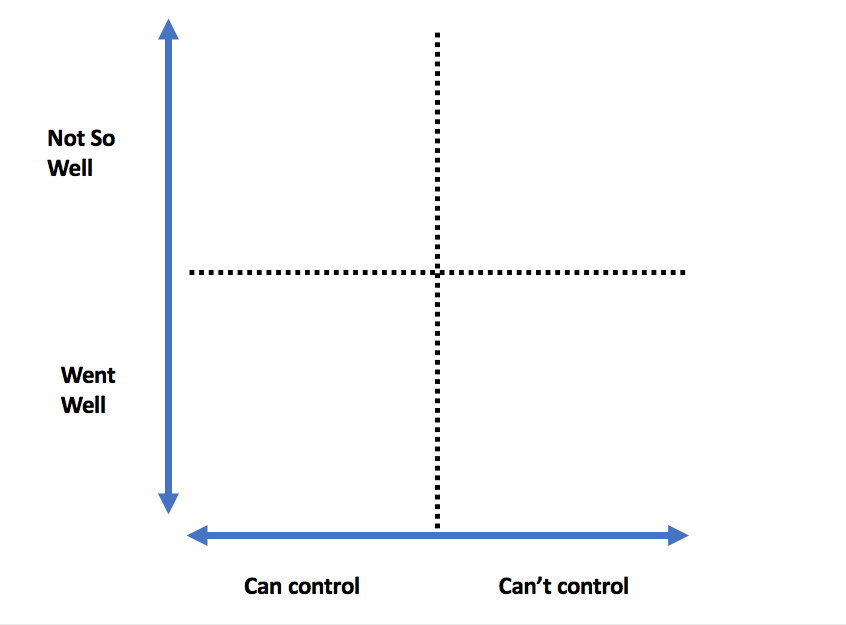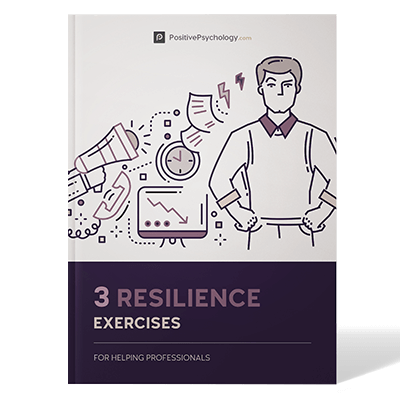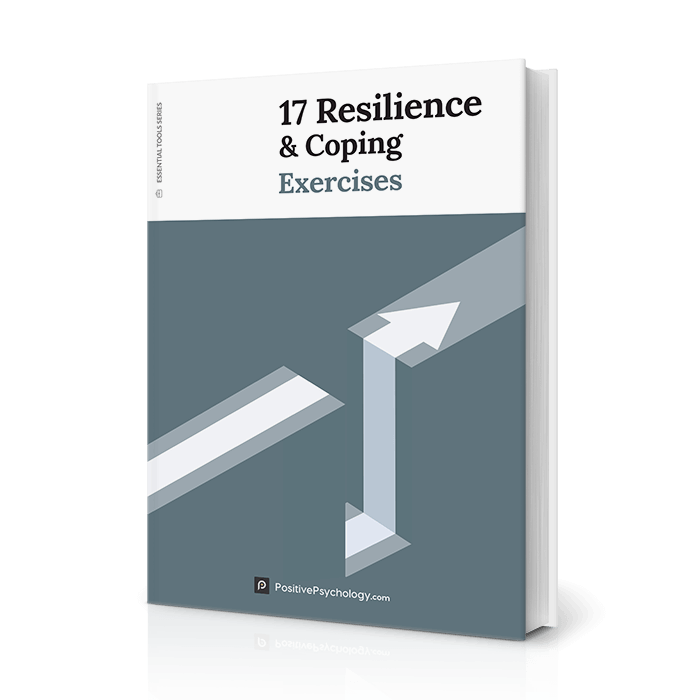The Science of Coping: 10+ Strategies & Skills (Incl. Wheel)
 Can’t cope? Overwhelmed? Stressed?
Can’t cope? Overwhelmed? Stressed?
We all have trouble coping at some points in life. We don’t get the promotion we hoped for; our relationship breaks down; a presentation is overdue.
Whether you cope or not depends on how you think. Stress is a feeling of emotional or physical tension, and it arises from how you interpret life’s events as they unfold.
Our coping skills have evolved to help us survive in environments very different from those in which most of us now live, work, and play (Cosmides & Tooby, 2013). While we have a body and mind well adapted to overcome the challenges faced by hunters running down a kudu in the African savannah, we are a poor match for the difficulties found in modern life (Li, Vugt, & Colarelli, 2017).
Psychological research in the fields of sports, business, and beyond has identified approaches, skills, and tools that can help us cope, overcome, and even flourish.
The strategies that follow take us beyond a focus on repairing weaknesses and attending only to what is wrong, and instead view growth as default, mental wellbeing as expected, personal strengths to be built up, and an authentic existence to be lived.
Before you continue, we thought you might like to download our three Resilience Exercises for free. These engaging, science-based exercises will help you to effectively cope with difficult circumstances and give you the tools to improve the resilience of your clients, students, or employees.
This Article Contains:
A Look at the Coping Wheel
Coping strategies are processes used to manage stress. They help to control your thoughts, feelings, and actions before, during, and after challenging situations.
And there are plenty of them.
Research into coping has identified over 400 strategies and multiple classifications (Machado et al., 2020), including:
- Problem focused (proactively dealing with the source of the stress) versus emotion focused (reducing stress by regulating emotion)
- Approach (alleviating the problem directly) versus avoidance (distancing oneself from the stressor)
In an analysis of 44 studies, researchers found that coping strategies fit under 12 mutually exclusive coping families, represented in the diagram below (Skinner & Zimmer-Gembeck, 2007).
Source: The Positive Psychology Toolkit© (The Coping Strategy Wheels)
Techniques and strategies have a focus (e.g., actions, social resources), a coping family that shares the same action tendency (e.g., problem solving, negotiation), and a way of coping (e.g., surrender, emotion regulation).
5 Strategies for Coping With Stress
Psychological stress arises in response to social and physical environments (Monroe & Slavich, 2016).
The stressor can be mild or intense: walking to the office on a hot day or traveling through the Kalahari Desert on foot, a pre-lunch rumbling stomach or failure of a vital food crop, an awkward conversation with a coworker or a hostage negotiation.
Such events cause a state of strain; impact our psychological and physical wellbeing; and vary in magnitude, timescale, and use of coping mechanisms.
The tools that follow can be adopted and adapted as needed to assist coping in difficult times, promoting growth, and supporting mental toughness and resilience.
They reframe a present or future situation, reduce or remove negative thoughts, or foster learning how to think positively.
1. ABCDE model
The ABCDE model, developed by Albert Ellis in the 1950s, provides a reflective framework. It supports us in changing our emotions and behaviors by identifying irrational beliefs and swapping them with rational ones.
Recognize, write down, and then challenge beliefs that are irrational or unhelpful.
| ABCDE model | |
|---|---|
| A – Adversity or Activating event | I didn’t do well in my math test today. |
| B – Recognize the irrational Belief | I’m useless. I can’t do anything right. |
| C – Recognize the Consequence | I give up and stop studying for the exam next week. |
| D – Dispute the irrational belief and turn it into a rational belief | I did well in the test last week. I’ve been studying well, but I hadn’t covered this topic yet. The results show me where I need to focus my attention. |
| E – Effect of the new rational belief | I sit down with my teacher to understand where I went wrong. We work on parts of the test I didn’t understand, and I include what I have learned in my future studying. |
The process of disputing irrational beliefs can lead to a more authentic, beneficial belief system. You may not have control over your environment, but you do have control over your reactions.
2. Positive thinking
Everything we know, believe, and feel is based on our internal thoughts. Positive thinking gives us extraordinary power over our thinking and ourselves (Strycharczyk & Clough, 2015).
Affirmations are used widely within sports. The repetition of short statements provides a way for the athlete to mirror the uplifting effects of hearing positive messages from a friend or coach.
Spend some time thinking about situations that you have faced or expect to encounter in the future. For each, write down a few short, supportive statements that provide strength during a challenge.
| Situation | Short, supportive statements |
|---|---|
| Interview | I have prepared well. I am looking forward to sharing my past successes. |
| Presenting | I’m confident and comfortable. I enjoy presenting and sharing my ideas. |
There is also growing evidence that the use of positive internal conversations, known as self-talk, can significantly improve how we tackle a challenge or approach a situation.
Talk to yourself as though a friend, coach, or supportive colleague is offering you positive advice.
| Situation | Suggested narrative |
|---|---|
| Difficult feedback at work | I will approach the meeting calmly and confidently, taking all the facts with me. |
| Running a marathon | I have trained for the last six months, and I am prepared for the distance. I am rested, and I have been eating well. I can do this. |
A good practice at the end of each day for positively reinforcing successful performance is to write down and review three achievements, small or large, from the last 24 hours.
This daily closure activity helps you focus on what went well, rather than dwelling on disappointments or perceived failures.
Use the achievements to take that positivity through to the next day.
| Name the achievement | Review the successes |
|---|---|
| Presentation | I nailed the presentation. I was ‘in the moment.’ The audience was engaged, and I received great feedback. |
| Time with family | I finished work early. My family and I went to the park and played. |
| Starting to write a book | I began writing a book today. It’s been on my mind for years. |
3. Visualization
It is common practice for athletes to use imagery while they prepare for an event, practice a movement, or train while injured. Swimmers mentally rehearse a perfect dolphin kick, and endurance runners imagine pulling extra miles from the depths of their mental and physical resources (Meijen, 2019; McCormick, Meijen, & Marcora, 2015).
Focusing on positive mental images can favorably impact both our mind and body and increase self-belief in our ability to cope with change.
The mind offers a safe and flexible environment for practicing a stressful task. Mentally rehearsing a daunting performance prepares the individual by asserting control over a (sometimes harmful) inner voice (Strycharczyk & Clough, 2015).
4. Control the controllable
Athletes often talk about controlling the controllable.
Adequate preparation will increase the perception of control, which is crucial to our mental toughness and motivation, and improve performance.
Write down a list of outcomes, real or imagined, to an important situation on sticky notes.
For example, when reviewing a challenging meeting:
- Did attendees arrive prepared?
- Were accurate notes and actions taken?
- Was the agenda followed and all points covered?
- Was everyone heard?
- Was agreement reached over the critical decisions?
Place each note on a large copy of the following graph:
- What went well goes at the bottom and less well, at the top.
- What can be controlled goes in the left-hand column and what cannot be controlled, in the right-hand column
Review the completed graph.
Outcomes in the bottom-left quadrant – went well and can be controlled – require no action. Though it can be useful and increase self-belief to regularly review successes.
Outcomes in the top-left quadrant were within our control but unsuccessful. Ask yourself how you could have handled the situation better or differently. Once reviewed, consider how best to approach it next time, then let go of it. Do not dwell.
Anything on the right-hand side of the table is outside of our control. Revisit to confirm that it is still the case. Focus on what can be controlled and accept what cannot.
5. Three steps to handle stress
People who adopt the mindset that “stress is enhancing” experience more exceptional performance and less negative health symptoms (Crum & Crum, 2018).
If view positively, physical and mental stress are essential to moving from a fixed to a growth mindset.
Having worked with athletes and Navy SEALS, Crum and Crum (2018) propose a three-step approach to harnessing the positive aspects of stress while minimizing any negative health impacts.
Step one – “See your stress”
Don’t attempt to ignore stress. Label it.
Seeing it as something positive, rather than to be avoided, can change our physical, cognitive, and behavioral response to it.
See it, and label it: “I am stressed because I haven’t completed the report yet.”
Step two – “Own it”
When you are at risk of being overwhelmed by stress, own it.
Own it: “I recently got the promotion I wanted; this is part of my new role.”
Step three – “Use it”
Your body and mind have evolved to respond to stress; use that energy, alertness, and heightened concentration to boost your mind.
Use it: Be open to the opportunity. Use the stress to energize and motivate yourself.
Reframing stress to something positive can enable you to overcome existing and future obstacles (Crum & Crum, 2018).
A Real-Life Example
The following real-life example exemplifies the human capacity to cope. Csikszentmihalyi (2009) describes this ability as follows:
“the same stressful event might make one person utterly miserable, while another will bite the bullet and make the best of it.”
Against all odds
When Carmen’s estranged husband broke into her home, he beat her so severely that the police said it was more brutal than anything they had ever seen. Following the horrific injuries to her head, she remained in a coma for three months (Hooper, 2019).
When she regained consciousness and was finally able to get out of bed, she was in terrible pain, blind, and required multiple skin grafts. Surprisingly, rather than feeling sorry for herself, she realized she had been given a gift: the opportunity to help people.
Despite, as she describes it, “looking shocking,” she became a speaker and an inspiration to many.
And the story doesn’t end there. The tight skin grafts on Carmen’s face continued to cause her immense pain, and she became only the seventh person to have a face transplant. To give further insight into her character, she connected and struck up a close friendship with the daughter of the donor. They now see each other regularly.
Carmen’s story of resilience is incredible. Not only did she survive injuries she could have died from, but she overcame the challenges to flourish in her new life.
Teaching Coping to Children: 3 Ideas

He has worked closely with British Olympic athletes and supported British Cycling in their considerable successes.
His bestseller, The Chimp Paradox, explains the inner workings of the brain using what he describes as the “Chimp Model.” It consists of three elements: the human, the chimp, and the computer.
The human – you – uses a logical and rational approach to solving problems. The chimp represents the fast-reacting, instinctual parts of the brain. It interprets information emotionally and often responds impulsively, frequently causing us problems.
The final element, the computer, stores previous experiences and uses them to advise the human and the chimp. It represents your memory and a set of learned, automatic responses.
In My Hidden Chimp: Helping Children to Understand and Manage Their Emotions, Thinking, and Behaviour With Ten Helpful Habits, Peters and Battista (2018) use the same model to help children develop healthy habits for life.
Understanding when the chimp tries to take over
| Situation: | Not eating healthily |
|---|---|
| Your ‘human’ thoughts: | The chimp’s thoughts: |
| I want to eat good food to make me strong and healthy. | I don’t care; I like cake and candy. |
| Situation: | I don’t want to do homework |
|---|---|
| Your ‘human’ thoughts: | The chimp’s thoughts: |
| I like school, and I am good at my lessons. | I’m watching TV; I don’t want to read. |
Identify words that describe you and your chimp
| Words to choose from | Words that describe you when the chimp doesn’t take over | Words that describe the chimp (some will match words that describe you) |
|---|---|---|
| Worried, playful, calm sad, busy, confident, funny, happy, grumpy, mean, bossy |
Happy, confident, sensible, loving, helpful, funny | Grumpy, happy, naughty, sad, funny, mean, bossy |
Trying new things
Sometimes we get scared to try new things.
Can you think of three things you would say to your friend’s chimp to help it try something new?
Encourage the chimp to try something new:
- If you try something new, you might enjoy it.
- Something new could be fun, and you could share it with friends.
- You could become more confident if you try new things.
Working through each of the above examples, with or without an adult, can help the child understand their feelings better and identify when the chimp tries to take over.
2 Ways to Cope With Anxiety
Psychological research has proven the importance of relaxation as an effective technique for managing anxiety. As psychology has confirmed, we can influence our minds by taking control of our bodies (Strycharczyk & Clough, 2015).
Exercises for managing anxiety include the following.
1. Controlled distraction
Similar to self-talk, controlled distraction reduces anxiety by redirecting attention away from a negative situation.
When a quick fix is required, take your mind off your anxiety by focusing on something that doesn’t cause you upset.
For example, before giving a presentation, count lights or ceiling tiles, listen to music, or imagine a past or future vacation.
2. The Laura Mitchell Relaxation Method
The Mitchell Relaxation Method (Mitchell, 1990) has been around for decades but remains a successful and widely used treatment for patients with anxiety.
The client is asked to ‘pull’ each muscle group in turn, stopping in between; for example, ‘pull your shoulders toward your feet,’ ‘stretch out your fingers and thumbs.’ They must remain mindful of their body position, breathing, muscles, joints, and skin.
How to Cope With Anger

The initial rush of adrenaline leads to physical indicators that you may become aware of before you spot emotional changes: increased heart rate, faster breathing, tension, and a clenched jaw and fists.
Simple techniques can quickly be adopted and buy extra thinking time: a short walk, counting to 10, or talking to a friend for independent advice.
Breathing techniques can also help you to find calm and reduce escalating feelings.
Box breathing is practical and easy to learn. Imagining each side of a box, breathe in (side 1), hold (side 2), breathe out (side 3), and hold (side 4). Each side should last approximately four seconds.
Exercise, distraction, and mindfulness are other positive ways to handle tension or release anger.
7 Books on the Topic
To learn more about coping, mental toughness, resilience, and our evolutionary background, check out these 7 books available on Amazon:
- On Mental Toughness by Harvard Business Review (Amazon)
- Mindset: Changing the Way You Think to Fulfill Your Potential by Carol Dweck (Amazon)
- Positivity: Groundbreaking Research to Release Your Inner Optimist and Thrive by Barbara Fredrickson (Amazon)
- Evolutionary Psychology: The New Science of the Mind by David Buss (Amazon)
- The Chimp Paradox: The Mind Management Program to Help You Achieve Success, Confidence, and Happiness by Dr. Steve Peters (Amazon)
- Self-Determination Theory: Basic psychological needs in motivation, development, and wellness by Richard Ryan and Edward Deci (Amazon)
- Developing Mental Toughness: Coaching Strategies to Improve Performance, Resilience, and Wellbeing by Doug Strycharczyk and Peter Clough (Amazon)
Realizing Resilience Masterclass Tools
The Realizing Resilience – Coaching Masterclass is an excellent resource for practitioners. Teach your clients how to become more resilient and mentally tough with the science-based techniques and tools in this online masterclass.
If you’re looking for more science-based ways to help others overcome adversity, this collection contains 17 validated resilience tools for practitioners. Use them to help others recover from personal challenges and turn setbacks into opportunities for growth.
A Take-Home Message
The human mind is impressive. It has evolved the potential to solve complex problems and successfully manage unexpected and novel situations.
And yet, coping is less about what is happening in the world, and more about how our minds interpret the situation. Perception is everything. This is why coping mechanisms focus on managing, reframing, or avoiding how we perceive the stressors.
If we can see stress not as something to be shied away from, but rather an opportunity to embrace, we can live a more complete, authentic life. After all, although evolution has shaped our minds and bodies, we are free to choose how we react and behave.
While we often lack control of our environment, we decide what affects us and how we respond.
It is not possible and would not be enjoyable to live a life without stress. Overcoming the challenges, pitfalls, and failures in life are just as crucial as celebrating the wins and enjoying happy outcomes. Stress is a valuable force for growth.
However, if our inability to cope is getting in the way of living a full life, achieving what we want, or causing damage to others, then we must adopt and adapt the tools that work best to overcome the situation and flourish.
Thank you for reading.
We hope you enjoyed reading this article. Don’t forget to download our three Resilience Exercises for free.
- Buss, D. (2014). Evolutionary psychology: The new science of the mind (5th ed.). Psychology Press.
- Cosmides, L., & Tooby, J. (2013). Evolutionary psychology: New perspectives on cognition and motivation. Annual Review of Psychology, 64(1), 201–229.
- Crum, A., & Crum, T. (2018). Stress can be a good thing if you know how to use it. In Harvard Business Review, HBR’s 10 must-reads: On mental toughness. Harvard Business Review Press.
- Csikszentmihalyi, M. (2009). Flow: The psychology of optimal experience. Harper Row.
- Dweck, C. S. (2017). Mindset: Changing the way you think to fulfill your potential (6th ed.). Robinson.
- Fredrickson, B. (2010). Positivity: Groundbreaking research to release your inner optimist and thrive. Oneworld Publications.
- Hooper, R. (2019). Superhuman: Life at the extremes of mental and physical ability. Abacus.
- Li, N. P., Vugt, M. V., & Colarelli, S. M. (2017). The evolutionary mismatch hypothesis: Implications for psychological science. Current Directions in Psychological Science, 27(1), 38–44.
- Machado, A. V., Volchan, E., Figueira, I., Aguiar, C., Xavier, M., Souza, G. G., … Mocaiber, I. (2020). Association between habitual use of coping strategies and posttraumatic stress symptoms in a non-clinical sample of college students: A Bayesian approach. PloS One, 15(2).
- McCormick, A., Meijen, C., & Marcora, S. (2018). Effects of a motivational self-talk intervention for endurance athletes completing an ultramarathon. The Sport Psychologist, 32(1), 42–50.
- Meijen, C. (2019). Endurance performance in sport: psychological theory and interventions. Routledge.
- Mitchell, L. (1990). Simple relaxation: The Mitchell method of physiological relaxation for easing tension. Murray.
- Monroe, S. M., & Slavich, G. M. (2016). Psychological stressors: Overview. In G. Fink (Ed.), Stress: Concepts, cognition, emotion, and behavior: Handbook in stress series (vol. 1) (pp. 109–115). Academic Press.
- Peters, S. (2016). The chimp paradox: The mind management program to help you achieve success, confidence, and happiness. Vermilion.
- Peters, S., (Author) & Battista, J. (Illustrator) (2018). My hidden chimp: Helping children to understand and manage their emotions, thinking, and behaviour with ten helpful habits. Studio Press Books.
- Ryan, R. M., & Deci, E. L. (2018). Self-determination theory: Basic psychological needs in motivation, development, and wellness. Guilford Press.
- Skinner, E. A., & Zimmer-Gembeck, M. J. (2007). The development of coping. Annual Review of Psychology, 58, 119–144.
- Strycharczyk, D., & Clough, P. (2015). Developing mental toughness: Coaching strategies to improve performance, resilience, and wellbeing. Kogan Page.
Let us know your thoughts
Read other articles by their category
- Body & Brain (49)
- Coaching & Application (57)
- Compassion (26)
- Counseling (51)
- Emotional Intelligence (24)
- Gratitude (18)
- Grief & Bereavement (21)
- Happiness & SWB (40)
- Meaning & Values (26)
- Meditation (20)
- Mindfulness (45)
- Motivation & Goals (45)
- Optimism & Mindset (34)
- Positive CBT (28)
- Positive Communication (20)
- Positive Education (47)
- Positive Emotions (32)
- Positive Leadership (18)
- Positive Parenting (4)
- Positive Psychology (33)
- Positive Workplace (37)
- Productivity (16)
- Relationships (46)
- Resilience & Coping (36)
- Self Awareness (21)
- Self Esteem (38)
- Strengths & Virtues (32)
- Stress & Burnout Prevention (34)
- Theory & Books (46)
- Therapy Exercises (37)
- Types of Therapy (64)







What our readers think
Hello,
Are there teaching materials available in other languages? I have a few Spanish speakers that would benefit greatly from having the literature written in Spanish.
Thank you.
Hi there Carole,
Thanks for your question! As of now, we only offer our Masterclasses and manuals in English. However, many past customers have translated our teaching materials into multiple different languages so they can use it in their practices in their home countries 🙂
I hope this helps!
Kind regards,
-Caroline | Community Manager
Dear Jeremy,
Thoroughly enjoyed reading the above with regards to coping methods. I am very sorry if this is irrelevant, however, which human suject Phd is related to this as I am really interested in taking on my studying further but failing in finding a good subject . Thank you and best regards